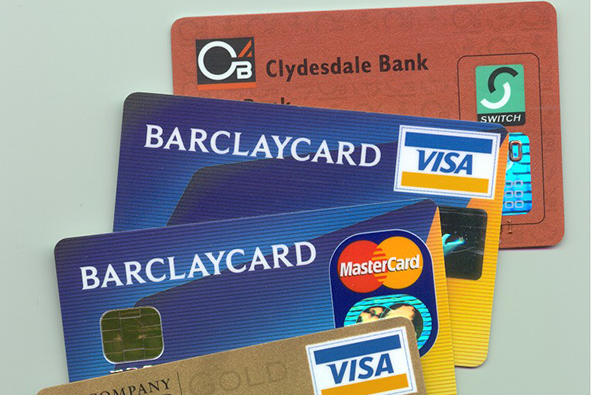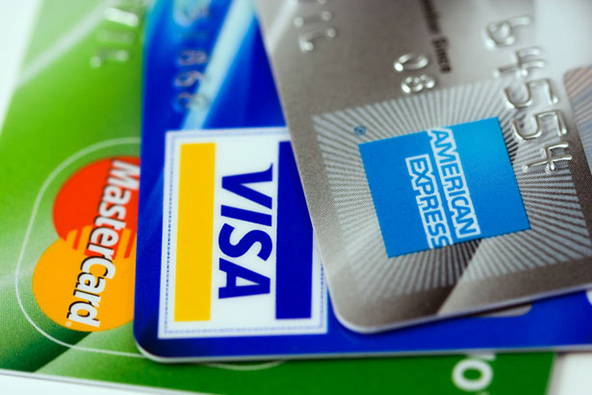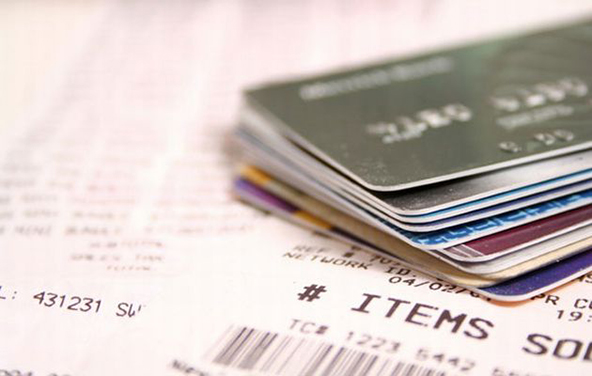Credit Card Sign-up Bonuses Twice Bigger than a Year Ago

I’ve been looking for hard data on the growth in the size of the sign-up bonuses with which card issuers are enticing new customers for quite some time. There have been numerous reports about issuers mailing out offers with some incredibly attractive bonuses and we have quoted a fair number of them on this blog, but statistical data have been elusive.
Well, the good people at Card Hub have again come to my rescue, as they’ve done on numerous occasions before. Their latest Credit Card Landscape Report tells us that in the first quarter of this year, the initial cash-back rewards to new cardholders have doubled, compared to the same period a year ago. Rewards programs, in general, have also become much more generous, we learn. Let’s take a closer look at the data.
Sign-up Bonuses, Cash-back Rewards Up
Card Hub’s report tells us that in Q1 2012 the average initial cash-back bonus was $57.42, 99.2 percent above the $28.82 average calculated for Q1 2011 (I don’t know why Card Hub puts the change at 92.56 percent). Bonuses given in miles or points have also increased, but at a lower rate than the cash-back category. The average such bonus in Q1 2012 was calculated to have been 10,051, up 19.3 percent from the 8,425 average in Q1 2011.
Zero-percent introductory interest rate periods in Q1 2012 were 27 percent longer than they were in Q1 2011, we learn. Zero-percent balance transfer terms were about 36 percent longer. On the downside, balance transfer fees rose slightly (from 2.96 percent to 3.05 percent), while regular interest rates were mixed, rising for some types of borrowers, while falling for others (we do know from other sources like CreditCards.com that the average interest rate has slightly increased for the period).
In another positive development, highlighted by Card Hub’s report, card issuers are decreasing or eliminating foreign transaction fees. Less than a year ago, Capital One was the only major issuer offering credit cards that didn’t charge you an extra fee for using your card abroad. Then American Express, Chase and Citi all eliminated this fee from some of their cards.
Now Is a Great Time for a New Credit Card
So Card Hub’s report should convince anyone who may still have doubted it that now is as good a time as any to open up a new credit card. Of course, the best offers are only available to people with high credit scores, but we know that issuers are once again aggressively targeting sub-prime borrowers as well. A recent report from Equifax, one of the three national credit reporting agencies, revealed that credit limits on new sub-prime cards rose by 55 percent from 2010 to 2011. Many of these cards feature some form of an incentive.
We do know why rewards programs are getting better. The card issuers are feverishly looking for ways to make up for the lost debit interchange revenues that resulted from the enactment of the Durbin Amendment. Debit transactions are now much less profitable than credit and prepaid and so, unsurprisingly, the issuers are doing their best to drive customers toward using the more profitable types of cards. This is one of the very few positive side effects of the interchange reform, which on balance has had a negative impact on consumers.
The Takeaway
I am not recommending that you should start applying for every card you have been offered. In fact, doing so will damage your credit score and you don’t want that to happen. Remember that each credit application that you file remains on your credit report for two years and having too many of them will damage your creditworthiness, as perceived by lenders. What you should do instead, is pick the best offer (or two at the most) and apply for it, but discard all others. And, by the way, if you have opted out of receiving pre-screened credit card offers, you may want to consider opting back in. See, the unsolicited lender inquiries into your credit history, which precede each pre-screened offer, do not affect your credit score in any way; only the actual applications you initiate do. Of course, if your income is high enough that a couple of hundred dollars in sign-up bonuses are neither here nor there, opting out would be your best course of action.
Finally, if you do get a new credit card, do not rush to close down your old one(s). One of the components of your FICO score is the length of your credit history – the longer, the better. There is no need to keep the old accounts open forever, if you are no longer using them, but you should at least wait until your newer accounts age a bit.
Image credit: HD.org.



Yes, we are living in a golden age of the sign-up bonuses. Here is a garden variety one, for a Citi ThankYou Preferred Card:
25,000 Bonus ThankYou?« Points (25,000 bonus ThankYou?« points will be part of your card membership when you spend $2,000 in purchases within the first three months of account opening. Exchange your points for a $250 gift card that you can use for yourself or give to a friend).
Such things have never existed before.
People need to be careful with these sign-up bonuses. Specifically, you need to pay close attention to the post-promotional APR that is going to be charged charged. Moreover, you should also look carefully at the penalties being charged by the card issuers, as these can also cost you a lot, if you make mistakes in your debt management, as many do.
Well, a recent National Geographic Traveler article describes in some detail how airlines make money from their frequent flier reward programs ?Çô usually at the expense of the cardholders ?Çô with loyalty programs which “have become an unwinnable game” because of changing awards, expiration dates, requirements, seat availability, etc. So people need to be careful with their reward cards.
One of the best examples of the new-age rewards programs is the British Airways card, which gives you$1,000 in sign-up bonuses, but has two major downsides. The first one is its annual fee ($95), which isn?ÇÖt waived the first year. The second downside is that if you do redeem your points for a transatlantic airline flight, you would be required to pay taxes and fees, in addition to your miles. You would also be on the hook for about $650 in economy class and $1,100 in business class from New York to London.
While some consumers choose their credit cards based on the APR or on a zero-interest balance transfer promotion, if you won’t carry a balance on your credit card you will probably be more interested in a rewards program. The problem is that most credit cards that offer some kind of a reward are limited to consumers with good to excellent credit, so if you have sub-par credit, you may have to work on building it up by paying off your credit card balances and making on-time payments before you could be approved for a cash-back or a similar type of credit card.
Unlike regular cards, the ones that come with rewards or other perks typically carry higher interest rates and annual fees that can all too easily wipe out the value of the reward and can even end up costing you money, depending on your spending habits. These costs are built into the credit cards, but the package around them is designed to make them more attractive to consumers. So consumers should take the time to do the math and figure out whether or not their rewards card is actually costing them more money than it gives them in rewards.
Sometimes it makes more sense to apply for a credit card just to collect the huge sign-up bonus, even if the loyalty program behind it is less than stellar, as far as its value is concerned. Get the points, redeem them, and move on.
Other times, however, it would make a better sense to get a credit card with a less flashy sign-up bonus, because it’s linked to a rewards program that you can live with in the long term.
People shouldn’t be duped by these offers. You should pick the credit card with the best rewards program of the type you prefer, and designate it for everyday use, to pay for things like gas, groceries, dining out, shopping, etc. Make sure you pay it off at the end of each month. You may want to use another card for charges like family vacations and trips, just to be sure you keep a closer eye on non-everyday spending and do not go overboard on the other card.
Regardless of how great a given credit cards rewards program is, the reality about all rewards cards is that you have to spend a lot of money in order to get to the point of earning any meaningful points or cash back. I found myself rationalizing a purchase or two with the argument (in my head) that “I will get cash-back for this”. For credit card issuers, this kind of thinking is what increases their bottom line. I no longer do that.
My attitude toward sign-up bonuses is the same as toward store credit cards. Just as when shopping at a big retailer, I would take up the offer for a new credit card to get, say, a 10% discount, I would sometimes do the same with a credit card with a big sign-up bonus. Then, when the bill comes due, I would pay it in full and close the account. It is true that I would risk a slight dent in my credit score, but it would be only temporary.
Sign-up bonuses may have improved a bit, but cash-back credit card reward programs have in fact improved only “modestly” over the past year, according to a recent Bankrate survey of 50 credit cards from 19 different card issuers, which was conducted in January. About half of these cards pay 1% cash back, up from 44% in last year?ÇÖs study and some even pay more than 1%. However, higher rewards are often linked to certain categories or have some other special conditions attached.